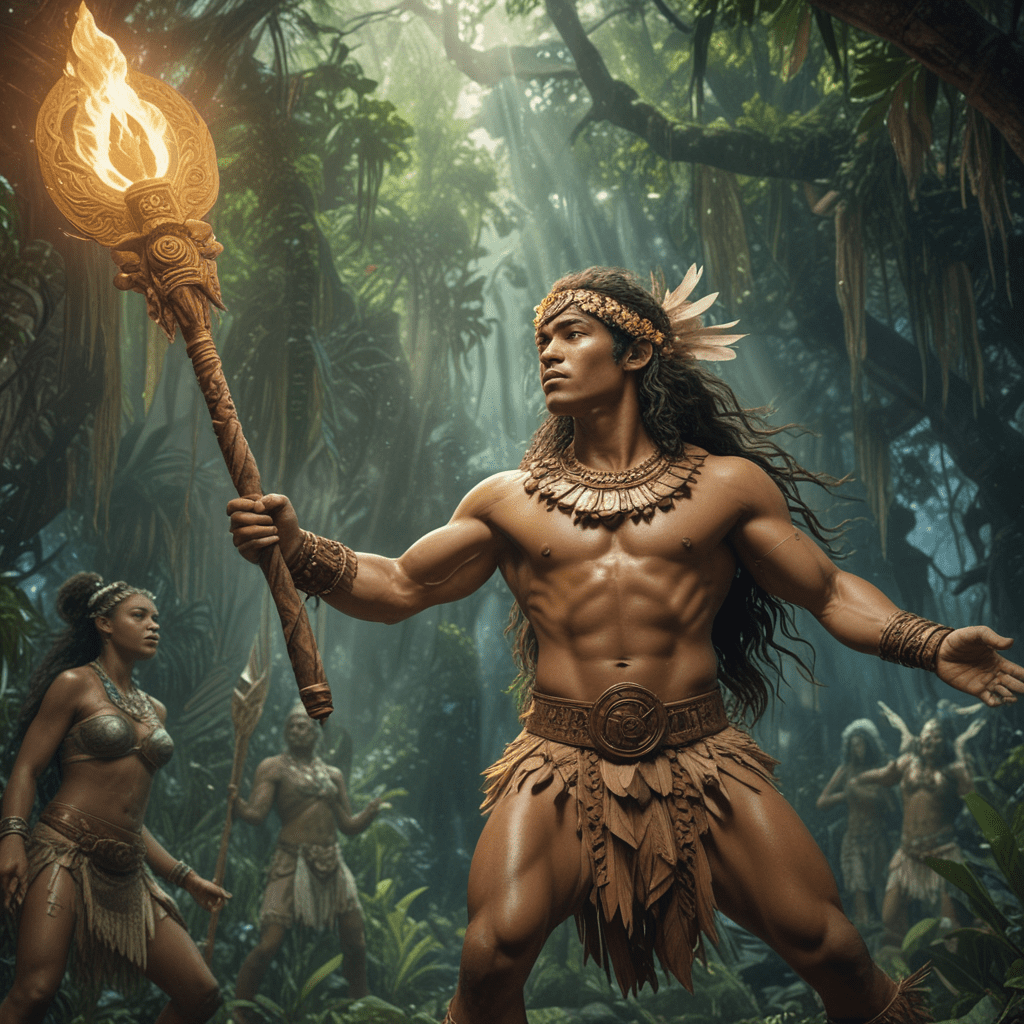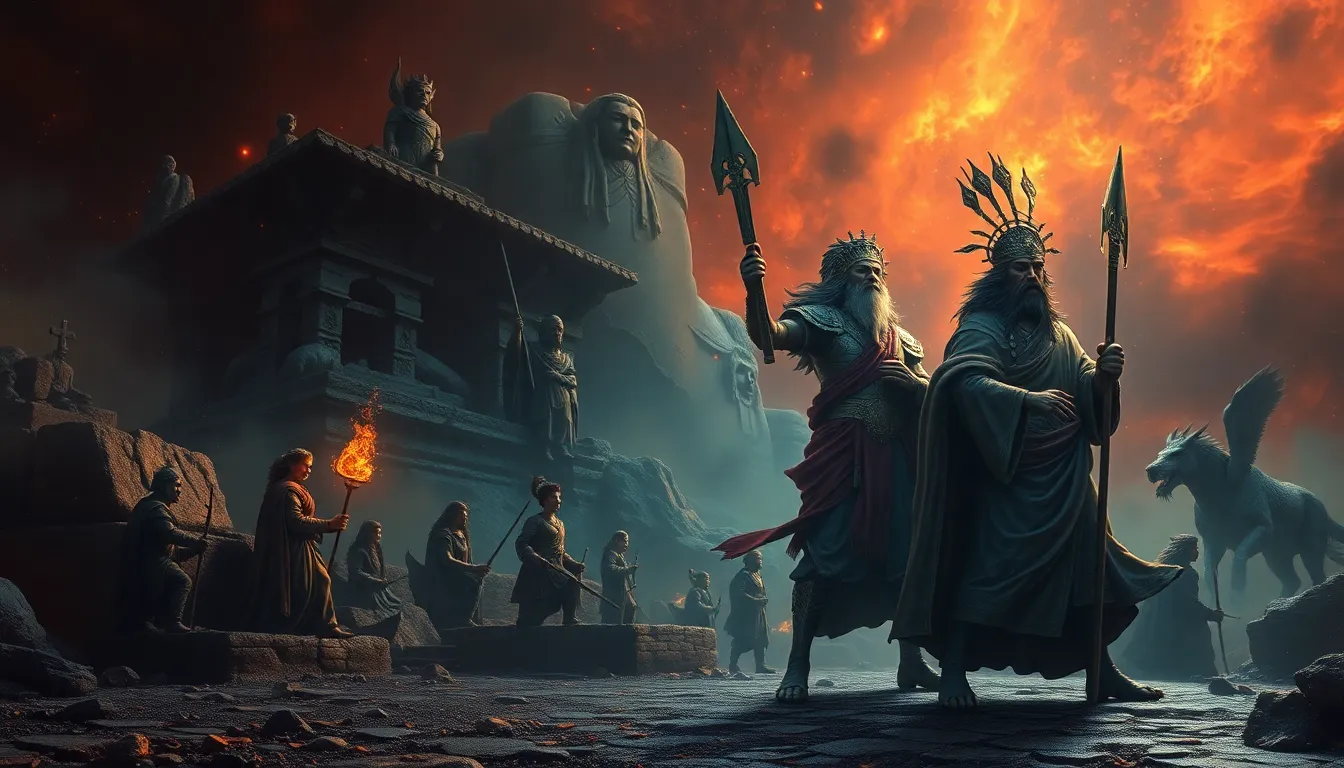The Realm of Spirits in Polynesian Mythology
Polynesian mythology is a vast tapestry of interconnected beliefs, legends, and traditions that weave together the tangible and spiritual realms. At the heart of this multifaceted mythology lies the concept of spirits, ethereal beings that permeate the world, influencing the lives of humans and shaping the very fabric of existence.
In Polynesian mythology, spirits exist in a parallel realm, coexisting with the human world. They are often regarded as ancestors, nature spirits, or divine beings, each possessing distinct attributes, powers, and motivations. This spirit realm is believed to be accessible through certain rituals, ceremonies, and the guidance of spiritual intermediaries, such as shamans and priests.
The Concept of Mana: The Vital Force of Spirits
Central to Polynesian mythology is the concept of mana, a vital force or energy that permeates all aspects of existence. Mana is not exclusive to spirits but is present in all living things, objects, and even places. Spirits, however, are often depicted as possessing potent mana, which can be both benevolent and malevolent.
The concept of mana shapes the Polynesian worldview, influencing social structures, religious practices, and personal conduct. Individuals with high mana are respected and revered, while those with low mana may be marginalized or ostracized. The concept of mana also extends to the spirit world, as spirits are believed to possess varying degrees of mana, which determines their power and influence.
Spirit Guardians and Ancestors: Honoring the Deceased
Polynesians believe that the spirits of deceased ancestors play an active role in the lives of the living. These ancestral spirits are often regarded as protectors, guides, and sources of wisdom. They are revered through rituals, offerings, and prayers, ensuring their continued support and benevolence.
In Polynesian mythology, ancestors are not simply forgotten after death but are considered integral members of the community. They are consulted for guidance, invoked for protection, and celebrated through feasts and festivals. The concept of ancestor worship is deeply ingrained in Polynesian culture, shaping familial bonds, social norms, and religious practices.
The Role of Shamans and Priests: Intermediaries with the Spirit World
Shamans and priests hold a pivotal role in Polynesian mythology as intermediaries between the human and spirit realms. They are believed to possess the ability to communicate with spirits, interpret their messages, and facilitate rituals that bridge the gap between the two worlds.
Shamans are often depicted as individuals with extraordinary spiritual powers, capable of entering trance states, traveling to the spirit world, and healing the sick. Priests, on the other hand, are primarily responsible for conducting religious ceremonies, maintaining temples and shrines, and officiating at important life events. Together, shamans and priests play a crucial role in maintaining the balance between the human and spirit realms.
6. Supernatural Beings: Gods, Goddesses, and Demigods
Polynesian mythology is replete with supernatural beings, including gods, goddesses, and demigods. These celestial entities are believed to possess immense power and influence over various aspects of life and nature. Gods and goddesses are often associated with specific domains, such as sky, sea, war, agriculture, or fertility. They are revered through prayers, sacrifices, and festivals, seeking their favor and protection. Demigods, on the other hand, are individuals of divine or semi-divine lineage, possessing extraordinary abilities and playing a pivotal role in mythological narratives.
7. Nature Spirits and the Enchantment of the Islands
Polynesian mythology attributes spirits to all aspects of the natural world, from towering mountains to tranquil streams. These nature spirits are believed to inhabit and embody the essence of their respective domains. Mountains, forests, and rivers are said to be guarded by powerful spirits, influencing the well-being of those who dwell nearby. Animals, plants, and celestial bodies are also seen as manifestations of spirits, each possessing unique traits and powers. The Polynesian concept of nature spirits adds an enchanting layer to the islands, fostering a deep connection between humans and their environment.
8. Rituals and Ceremonies: Connecting Humans to Spirits
Rituals and ceremonies play a crucial role in Polynesian mythology, serving as a bridge between the human and spirit realms. These sacred practices are designed to honor spirits, seek their favor, and facilitate communication. Rituals may involve prayers, offerings, music, dance, and other symbolic gestures. Ceremonies are often performed at sacred sites, such as temples or burial grounds, and are officiated by shamans or priests. Through rituals and ceremonies, Polynesians strive to establish and maintain a harmonious relationship with the spirits that surround them.
9. Polynesian Legends and Myths: Narratives of Spirit Interactions
Polynesian legends and myths are a rich source of stories and narratives that depict interactions between humans and spirits. These stories often serve to explain the origins of the world, the creation of humans, and the nature of the relationship between the living and the dead. Legends and myths also provide insights into the beliefs, values, and customs of Polynesian societies. Through these captivating tales, Polynesians have passed down their spiritual and cultural heritage from generation to generation, preserving the essence of their mythology.
10. Contemporary Significance: The Enduring Presence of Spirits
The spirits of Polynesian mythology continue to hold significance in contemporary Polynesian cultures. Many traditional beliefs and practices have been preserved and adapted over time,融入现代生活方式. Rituals, ceremonies, and the honoring of ancestors remain an integral part of cultural identity. The concept of mana and the belief in nature spirits continue to shape the worldview and environmental consciousness of Polynesian communities. Through contemporary art, literature, and film, Polynesian mythology is being reinterpreted and revitalized, ensuring its enduring presence in the modern world.
FAQ
Q: What is the central concept in Polynesian mythology regarding spirits?
A: The belief that spirits, including ancestors, nature spirits, and supernatural beings, play an active role in human affairs.
Q: How do Polynesians interact with spirits?
A: Through rituals, ceremonies, and the guidance of intermediaries such as shamans and priests.
Q: What is the role of mana in Polynesian mythology?
A: Mana is a vital force or energy that permeates all aspects of existence, including spirits, and is believed to influence power and influence.
Q: How are ancestors viewed in Polynesian mythology?
A: As protectors, guides, and sources of wisdom, who are revered and consulted through rituals and prayers.
Q: What are some examples of supernatural beings in Polynesian mythology?
A: Gods, goddesses, and demigods, each possessing specific domains and powers, and playing a role in shaping the world.


